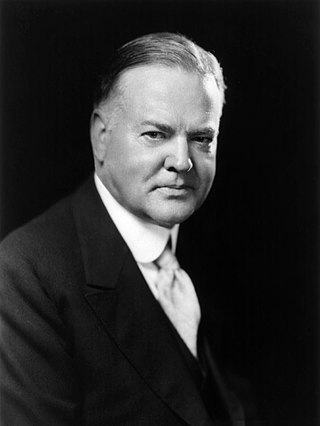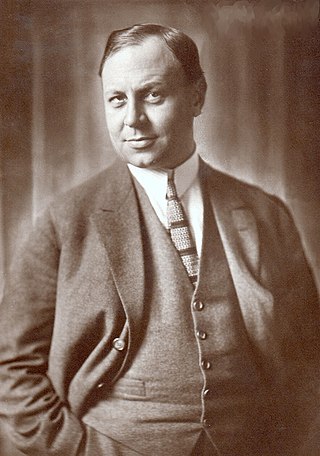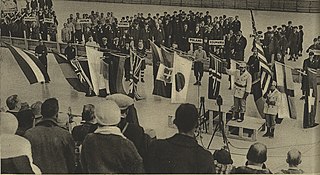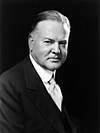
The Tariff Act of 1930, commonly known as the Smoot-Hawley Tariff or Hawley-Smoot Tariff, was a law that implemented protectionist trade policies in the United States. Sponsored by Senator Reed Smoot and Representative Willis C. Hawley, it was signed by President Herbert Hoover on June 17, 1930. The act raised US tariffs on over 20,000 imported goods.

Herbert Hoover's tenure as the 31st president of the United States began on his inauguration on March 4, 1929, and ended on March 4, 1933. Hoover, a Republican, took office after a landslide victory in the 1928 presidential election over Democrat Al Smith of New York. His presidency ended following his defeat in the 1932 presidential election by Democrat Franklin D. Roosevelt.

The following events occurred in December 1928:

The following events occurred in April 1929:

The following events occurred in May 1929:

The following events occurred in December 1929:

The following events occurred in May 1930:

The following events occurred in June 1930:

The following events occurred in February 1932:
The following events occurred in July 1932:

Eleven United States presidents and one president-elect have made presidential visits to South America. The first trip was made by Herbert Hoover in 1928. During this tour he delivered twenty-five speeches in ten Central and South American countries, almost all of which stressed his plans to reduce American political and military interference in Latin American affairs. In sum, he pledged that the United States would act as a "good neighbor."

The presidency of Calvin Coolidge began on August 2, 1923, when Calvin Coolidge became the 30th president of the United States upon the sudden death of Warren G. Harding, and ended on March 4, 1929.
Warren G. Harding was inaugurated as the 29th president of the United States on March 4, 1921, and served as president until his death on August 2, 1923, 881 days later. During his presidency, he organized international disarmament agreements, addressed major labor disputes, enacted legislation and regulations pertaining to veterans' rights, and traveled west to visit Alaska.

The presidency of Woodrow Wilson began on March 4, 1913, when Woodrow Wilson was inaugurated as the 28th president of the United States, and ended on March 4, 1921.
The Gadsden Purchase half dollar was a proposed commemorative coin to be issued by the United States Bureau of the Mint. Legislation for the half dollar passed both houses of Congress in 1930 but was vetoed by President Herbert Hoover. The House of Representatives sustained his action, 96 votes in favor of overriding it to 243 opposed, well short of the necessary two-thirds majority. This was the first veto of Hoover's presidency and the first ever for a commemorative coin bill.
The presidency of Theodore Roosevelt began on September 14, 1901, when Theodore Roosevelt was inaugurated as the 26th president of the United States following the assassination of William McKinley, and it ended on March 4, 1909.

Arthur Glenn Froe was an American lawyer and politician. He was appointed by President Warren G. Harding as the Recorder of Deeds for the District of Columbia, and served in this position from 1922 to 1930 during the presidential administrations of Harding, Calvin Coolidge, and Herbert Hoover.

The presidential transition of Franklin D. Roosevelt began when he won the United States 1932 United States presidential election, becoming the president-elect of the United States, and ended when Roosevelt was inaugurated at noon EST on March 4, 1933.

The presidential transition of Herbert Hoover began when he won the United States 1928 United States presidential election, becoming the president-elect, and ended when Hoover was inaugurated at noon EST on March 4, 1929.
The presidency of William Howard Taft began on March 4, 1909, when William Howard Taft was inaugurated the 27th president of the United States and ended on March 4, 1913.





















